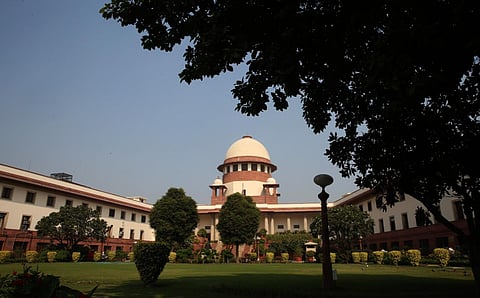

NEW DELHI: While asking states/appropriate authorities to decide on mercy petitions at the earliest, the Supreme Court has said that inordinate delay in not deciding on mercy pleas will “frustrate the object and purpose of the death sentence.”
A bench of Justices MR Shah and CT Ravikumar said, “If even after the final conclusion even upto this court, even, thereafter there is an inordinate delay in not deciding the mercy petition, the object and purpose of the death sentence would be frustrated.”
Stating that death row convicts were taking advantage of an inordinate delay in deciding mercy petitions, the bench said that all efforts shall be made by the state government and/or the concerned authorities to see that the mercy petitions are decided and disposed of at the earliest, so that even the accused can also know his fate and even justice is also done to the victim.
Court’s order came in a plea filed by the Maharashtra government against the Bombay High Court’s January 18, 2022 order in which the HC commuted the death sentence awarded to a woman and her sister to one of life imprisonment. The bench noted that it appeared the death sentence was commuted by the high court in life imprisonment on the grounds of the state’s inordinate “unexplained delay” on the state/governor’s part in not deciding the mercy petition for seven years and 10 months.
A local court had awarded the death sentence to them in 2001 for kidnapping 13 children and killing nine in Kolhapur, which was confirmed by the high court in 2004. Even the Supreme Court upheld the high court order in 2006. Later, their mercy petitions were rejected by the Governor in 2013 and subsequently by the president in 2014.
The court while directing the states also relied on the SC ruling on Jagdish Vs. State of Madhya Pradesh wherein the court commuted the death sentence to life imprisonment after taking into consideration the delay in disposal of the mercy petition of above five years.
Under Article 72 of the Constitution, the President has the power to grant pardons and decide on mercy petitions. Under Article 161 of the Indian Constitution, the Governor of State also possess the power to grant pardons, reprieves, respites and remission or suspend, remit or commute the sentence of a convict against state law.
(With inputs from PTI)